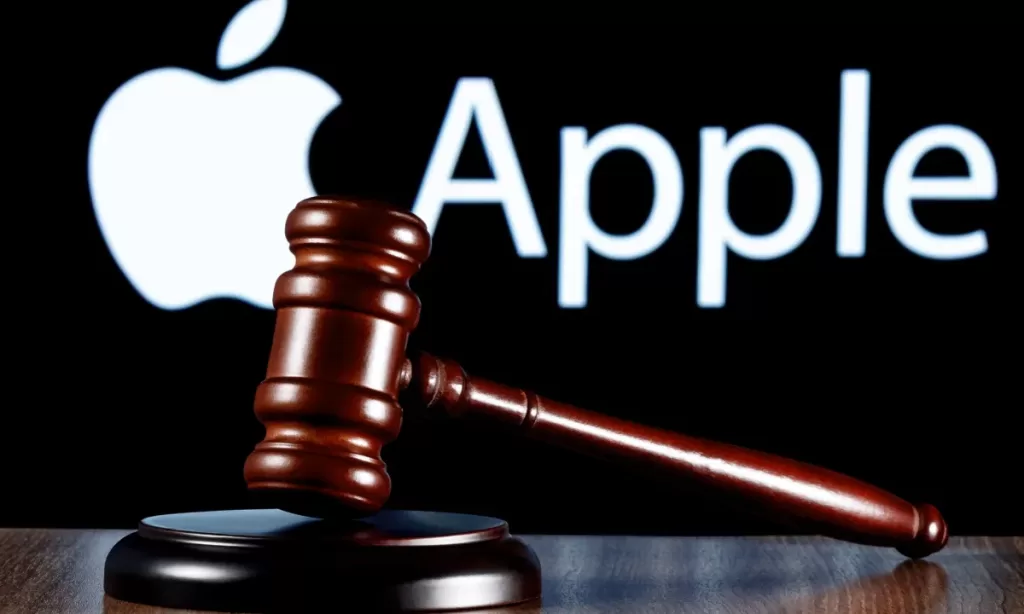Introduction: Apple Privacy Lawsuit
In a significant legal development, Apple Inc. is set to confront a narrowed privacy lawsuit that raises critical questions about user consent and data collection practices. This lawsuit, filed in the U.S. District Court for the Northern District of California, accuses Apple of violating user agreements and multiple privacy laws by allegedly collecting personal data without appropriate consent.

Key Details of the Lawsuit
The lawsuit centers on claims that Apple has been misleading users regarding its data collection practices, particularly through its proprietary apps such as the App Store, Apple Music, and Apple TV. Users argue that Apple assured them that disabling certain privacy settings would limit the collection of their data, only to find that their information was still being collected.
U.S. District Judge Edward Davila ruled that while claims related to the “Allow Apps to Request to Track” setting were dismissed, allegations regarding the “Share [Device] Analytics” setting were allowed to proceed. This decision highlights the complexities surrounding user consent and the implications of disabling certain settings.
The Legal Context: What’s at Stake?
This case is part of a broader trend of scrutiny facing major tech companies regarding their data privacy practices. Apple is not alone; other technology giants like Google and Meta Platforms are also under fire for similar allegations of user data collection without consent.
User Agreements and Privacy Concerns
At the heart of the lawsuit are claims that Apple has violated user agreements and various consumer protection laws by not adhering to its stated privacy commitments. Users contend that they were misled into believing that opting out of specific tracking settings would prevent all forms of data collection by Apple, which has proven to be untrue.
The Significance of User Consent
Judge Davila’s ruling emphasizes the importance of user consent in data collection. While Apple maintains that its privacy settings are clear and that users are informed about data collection, the lawsuit raises essential questions about whether users fully understand these settings and their implications.
Expert Opinions on Data Privacy
To shed light on this issue, we consulted with privacy law experts. Dr. Emily Hayes, a privacy rights advocate, stated, “This case has the potential to set a precedent for how tech companies disclose their data practices. Transparency is crucial, and users deserve clarity about what data is collected and how it is used.”
Attorney Mark Thompson added, “This lawsuit highlights the significance of user consent in our digital age. Companies must not only inform users but also ensure they comprehend their options regarding data collection.”
Potential Impact on Apple
Should the lawsuit proceed successfully, Apple may face substantial financial consequences, including damages sought by the plaintiffs. Additionally, the case could prompt Apple to reassess its data collection policies, enhancing transparency and user control over personal information.
Timeline of Events
- September 2022: The initial lawsuit is filed against Apple.
- September 28, 2024: A federal judge narrows the lawsuit, allowing claims related to the “Share [Device] Analytics” setting to proceed.
Conclusion
The narrowed privacy lawsuit against Apple underscores the vital discussion surrounding user consent, data collection, and the responsibilities of technology companies in protecting user data. As the case develops, it will be essential to observe its implications on Apple’s policies and the broader tech landscape.
This legal battle not only highlights the need for improved privacy practices but also reflects an increasing demand from consumers for greater control over their personal information. As users become more informed about their digital rights, technology companies like Apple may need to adapt to meet these evolving expectations.
For Regular Tech News and Updates Follow- Dot Com
FAQs
Q1: What are the implications of the Apple privacy lawsuit?
A1: The lawsuit could compel Apple to enhance its transparency and user control over personal data, potentially leading to significant policy changes.
Q2: How does user consent affect data collection practices?
A2: User consent is crucial; it determines how companies can collect, store, and utilize personal data. Proper disclosure and understanding of consent are essential for compliance with privacy laws.
Q3: What can consumers do to protect their data?
A3: Consumers should regularly review privacy settings, understand the implications of data sharing, and utilize available privacy tools to manage their information.
Q4: Are other tech companies facing similar lawsuits?
A4: Yes, major companies like Google and Meta are also under scrutiny for their data collection practices and compliance with privacy regulations.
Q5: What could be the potential outcomes of the lawsuit?
A5: Potential outcomes may include financial damages for Apple and mandated changes in data collection policies, affecting how user consent is handled across the industry.